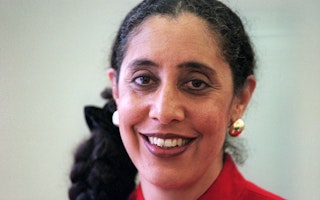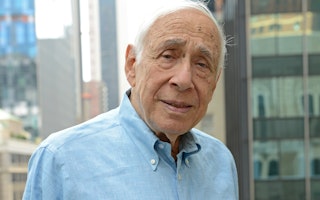Juvenile Life Without Parole
By Esi Mathis
Kenneth Young was just 14 years old when his mother’s drug dealer forced him to participate in a series of armed robberies. Kenneth was caught, convicted, and sentenced to four consecutive life sentences—a juvenile thrown behind bars with no chance of release. A flicker of hope arrived in 2010, when the U.S. Supreme Court ruled in Graham v. Florida that it is unconstitutional to sentence a child to life in prison without parole for a non-homicide crime.
Kenneth Young’s story and his plea for redemption under the Graham ruling are chronicled in 15 to Life: Kenneth’s Story, a PBS documentary airing as part of the network’s POV series and available online through September 3.
His story resonates especially strongly with me, because my oldest son had a very similar experience. Ralph was arrested at age 17 and charged as part of a drug ring led by adults that included more than 30 people.
Because of his youth, loyalty, and lack of maturity, he refused to testify against others; he was convicted and given three life-without-parole sentences. He was told he would die in prison. But thanks to the Graham ruling, last year—after almost 22 years in federal prison—Ralph was set free, just weeks before his 40th birthday.
My son and Kenneth Young are among the approximately 2,500 people sentenced to life without parole for crimes that occurred when they were children. The majority of people serving these sentences are people of color and those from low-income communities. Many were coerced into crime by misguided adults, underestimated the consequences of their actions, and sought absent love in all the wrong places—from gang members and on street corners.
They were not “little adults” when arrested and convicted. These children, many neglected and abused, need a society that does not discard them for life because of their youthful mistakes and wrongdoing.
The U.S. Supreme Court has ruled three times in the last decade that children are “constitutionally different” from adults and should not be given our country’s harshest punishments. The most recent decision came just two years ago, when the Court ruled in Miller v. Alabama that mandatory life-without-parole sentences are unconstitutional when imposed upon children.
As a mother, I knew that my son’s brain was still maturing. I knew he had potential that was yet to be nurtured and developed. Like many people from the communities most impacted by these extreme sentences, I am also a family member of a person who died as a result of violence committed by a young person.
My nephew was a teenager when he was killed by another teen. I also lost my toddler grandchild—Ralph’s son—to violence while Ralph was incarcerated. Just as I did not support life-without-parole for my child, I do not support it for anyone else’s child.
What would happen if 2014 were declared “The Year of the Child”? Perhaps such a declaration would heighten our focus and commitment across the country to invest in the needs of all children. Too many children suffer neglect and abuse daily. These children need love, nurture, food, shelter, clothing, and a sense of safety.
The United States bears the shameful distinction of being the only country in the world that sentences children to die in prison. That distinction must be eliminated. Science shows that children’s brains are still developing and that children possess a unique capacity for change.
We cannot consider ourselves a great nation when the most vulnerable among us are denied the support needed to survive and thrive. We cannot hold our heads high when we ignore the reality that children, even those who commit crimes, can and do change if given the opportunity and the support to do so. Many of us are living proof that positive changes can occur as we mature.
Ralph’s release was just the beginning of our individual and collective healing. Though once erroneously deemed disposable, he has changed and matured into an honorable young man, working to better communities and help steer young people in the right direction. He was given another chance to live as a productive citizen.
That is no more than all children deserve. They deserve for this and every year to be declared “The Year of the Child.”
Esi Mathis, an Open Society Soros Justice Fellow, is the family justice advocate for the Campaign for the Fair Sentencing of Youth.

